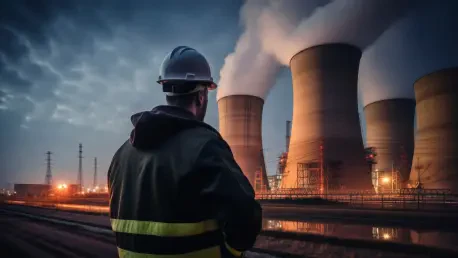I’m thrilled to sit down with Christopher Hailstone, a renowned expert in energy management and renewable energy, who also serves as our go-to authority on utilities. With his deep knowledge of grid reliability and electricity delivery, Christopher offers unparalleled insights into the complex energy landscape of East Asia. Today, we’re diving into the recent failed referendum in Taiwan concerning the reopening of the Maanshan Nuclear Power Plant, exploring the intersection of energy policy, public opinion, and safety concerns. We’ll discuss the reasons behind the referendum’s failure, the arguments for and against nuclear power, the government’s stance on safety and alternative energy sources, and what the future might hold for Taiwan’s energy mix.
Can you walk us through why the referendum to reopen the Maanshan Nuclear Power Plant didn’t succeed?
Certainly. The referendum, held recently in Taiwan, needed to meet a specific legal threshold to be considered valid—specifically, it required the support of at least one-quarter of all registered voters, which amounts to about 5 million people. Despite a clear majority of those who voted—around 4.3 million—supporting the reopening, it fell short of that critical number. Only 1.5 million voted against it, but the turnout wasn’t enough to push it over the line. I think a key reason for this shortfall is a mix of public skepticism about nuclear safety, especially given Taiwan’s history with earthquakes, and perhaps a lack of widespread awareness or urgency about energy supply issues among the broader population.
What were the driving forces behind the opposition parties’ push to restart the plant?
The opposition, particularly the Taiwan People’s Party and the Kuomintang, argued strongly that nuclear power is essential for ensuring stable energy supplies. They highlighted Taiwan’s heavy reliance on imported energy, which makes the island vulnerable to price fluctuations and supply disruptions. Their stance was that reopening Maanshan could reduce this dependency and provide a reliable, domestic source of power at a time when energy security is a growing concern. It’s a pragmatic argument, rooted in the need for self-sufficiency amidst global energy uncertainties.
How does the Taiwanese government view the risks associated with nuclear energy?
The government has been quite vocal about its apprehensions, primarily centered on safety. Taiwan is situated in a seismically active zone, and the risk of earthquakes poses a significant threat to nuclear facilities. A major disaster could have catastrophic consequences, and this fear is deeply ingrained in their policy against nuclear power. Additionally, there’s the unresolved issue of nuclear waste management—how to store and dispose of it safely over the long term. These concerns aren’t just technical; they resonate with a public that remembers past global nuclear incidents and questions whether the risks are worth the benefits.
President Lai Ching-te hinted at a potential return to nuclear power under certain conditions. Can you elaborate on what he meant by that?
Yes, President Lai’s comments were quite nuanced. He acknowledged the referendum’s failure but also recognized a public desire for diverse energy options. He suggested that Taiwan might reconsider nuclear power if future technologies become safer and if nuclear waste can be minimized. He also emphasized the importance of societal acceptance—meaning there needs to be broader public support for such a move. His reference to “advanced nuclear energy” likely points to innovations like next-generation reactors that promise enhanced safety features and efficiency, which could shift the conversation in the coming years.
Could you shed some light on Taiwan’s broader transition away from nuclear power?
Absolutely. The closure of Maanshan in May marked a significant step in Taiwan’s pivot away from nuclear energy. The government has been focusing on renewables, like solar and wind, alongside liquefied natural gas as primary alternatives. This shift aligns with global trends toward cleaner energy, but it’s not without challenges. Public reception has been mixed—while many support the green agenda, there are concerns about whether renewables can fully meet demand and if over-reliance on imported gas might create new vulnerabilities. It’s a delicate balancing act between sustainability goals and energy security.
Lastly, what is your forecast for the future of nuclear energy in Taiwan?
I think the future of nuclear energy in Taiwan hinges on two major factors: technological advancements and public perception. If safer, more efficient nuclear technologies emerge—and if the government can address waste management convincingly—there could be a gradual reopening of the debate. However, seismic risks will always loom large, and public trust remains fragile. In the near term, I expect Taiwan to double down on renewables and gas, but nuclear might re-enter the conversation in a decade or so if global innovations prove compelling and societal attitudes shift. It’s a wait-and-see scenario, heavily dependent on both science and sentiment.









